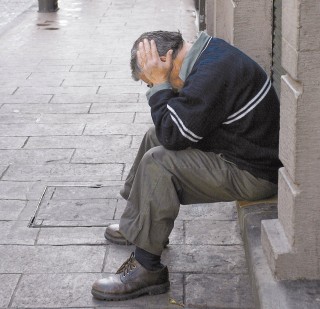The way it’s used today, impotence refers in general to a man’s inability to perform sexually, and specifically to his inability to get an erection. Of course, impotence has many other meanings, including powerless, helplessness, weakness, etc… The inaccurate idea that if a man can’t get an erection, he has no sexual power, is what makes impotence such a dangerous but also popular term. It’s a word that strikes fear in the hearts of those who are worried it might happen to them, and causes pain when it’s directed at someone as an insult.
lunes, 2 de mayo de 2011
What Is Sexual Impotence?
Publicado por Mikael Myers en 12:51 0 comentarios
Etiquetas: get erections, sexual impotence, sexual pleasure, sexual power
viernes, 1 de agosto de 2008
What is Erectiel Dysfunction?

Erectile dysfunction (ED), also known as impotence, is the inability to achieve or sustain an erection for satisfactory sexual activity. Erectile dysfunction is different from other conditions that interfere with sexual intercourse, such as lack of sexual desire and problems with ejaculation and orgasm. This article focuses on the evaluation and treatment of erectile dysfunction.
Erectile dysfunction (ED) is the inability of a man to maintain a firm erection long enough to have sex. Although erectile dysfunction is more common in older men, this common problem can occur at any age. Having trouble maintaining an erection from time to time isn't necessarily a cause for concern. But if the problem is ongoing, it can cause stress and relationship problems and affect self-esteem.
Formerly called impotence, erectile dysfunction was once a taboo subject. It was considered a psychological issue or a natural consequence of growing older. These attitudes have changed in recent years. It's now known that erectile dysfunction is more often caused by physical problems than by psychological ones, and that many men have normal erections into their 80s.
Although it can be embarrassing to talk with your doctor about sexual issues, seeking help for erectile dysfunction can be worth the effort. Erectile dysfunction treatments ranging from medications to surgery can help restore sexual function for most men. Sometimes erectile dysfunction is caused by an underlying condition such as heart disease. So it's important to take erectile trouble seriously because it can be a sign of a more serious health problem.
For more Information visit: http://www.prescriptiondrugs1.com
Publicado por Mikael Myers en 10:18 2 comentarios
Causes of Erectile Dysfunction.
There are a number of reasons why you may have impotence. In around three-quarters of cases there are physical problems affecting the blood supply. However, there is a complex relationship between the physical and psychological aspects of sexual function. For instance, you may have physical health problems that cause psychological distress and this may have an additional effect on erection problems.
Physical health
A number of different conditions may cause impotence, including:
- diabetes
- multiple sclerosis
- Parkinson's disease
- if you have had surgery in your pelvic area
- hormone imbalances
Psychological
Psychological problems can influence your ability to get and keep erections. These include:
- feeling anxious, guilty or depressed
- stress at work
- conflicts with your partner
- unresolved issues about your sexual orientation
Lifestyle
If you drink too much alcohol, this can affect your ability to get and keep an erection (often called brewer's droop). In the longer term, it interferes with the production of the male hormone testosterone, which can reduce your sexual drive and desire (libido).
called brewer's droop). In the longer term, it interferes with the production of the male hormone testosterone, which can reduce your sexual drive and desire (libido).
Smoking damages your blood vessels and so increases your risk of erection problems. Similarly, being physically inactive, which contributes to poor cardiovascular fitness, may raise the chances of you having impotence. Impotence may be an early warning sign that you are at risk of coronary heart disease (the arteries that go to your heart are narrowed).
Many men need greater tactile stimulation as they get older. You may want to consider a change in sexual foreplay and technique to ensure a sustained erection.
Medicines
The side-effects of some medicines such as those for high blood pressure and certain antidepressants can lead to impotence. Medicines can also affect your libido, or cause problems with ejaculation and orgasm. These can also have an effect on erections.
For more Information visit: http://www.prescriptiondrugs1.com
Publicado por Mikael Myers en 9:59 1 comentarios
How Treat the Erectile Dysfunction?
One way to improve erectile dysfunction is to make some simple lifestyle changes. For some men, adopting a healthier lifestyle, such as quitting smoking, exercising regularly, and reducing stress, may be all that is needed to find relief. For those who require more intensive treatment, adopting these lifestyle changes in addition to other treatments can further help.
Quit Smoking
Quitting smoking can be very difficult and there is no single best way to quit that works for all people. Some approaches to try that might help you kick the habit include:
- Pick a quitting date one to three weeks in the future. Prepare for the date by cutting down on smoking, staying away from your favorite places to smoke, and making a plan for how you will deal with stressful events without smoking.
- On your quitting date, get rid of all cigarettes, keep busy, and stay in smoke-free places.
- Talk to your doctor to see if you should try nicotine replacement therapy. The nicotine patch, nicotine gum, or other medication can be helpful but they will not take away your cravings to smoke.
Publicado por Mikael Myers en 8:58 2 comentarios





